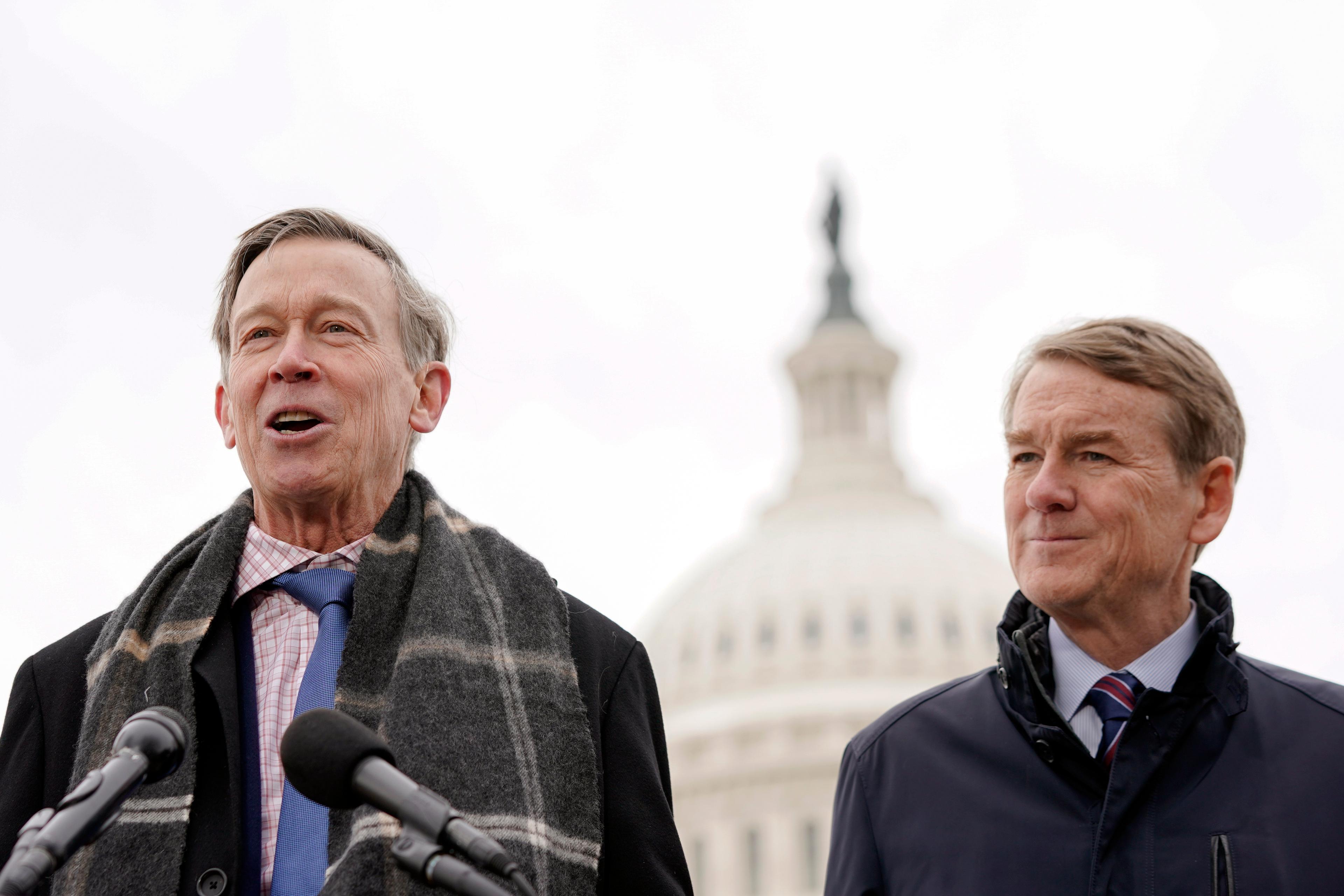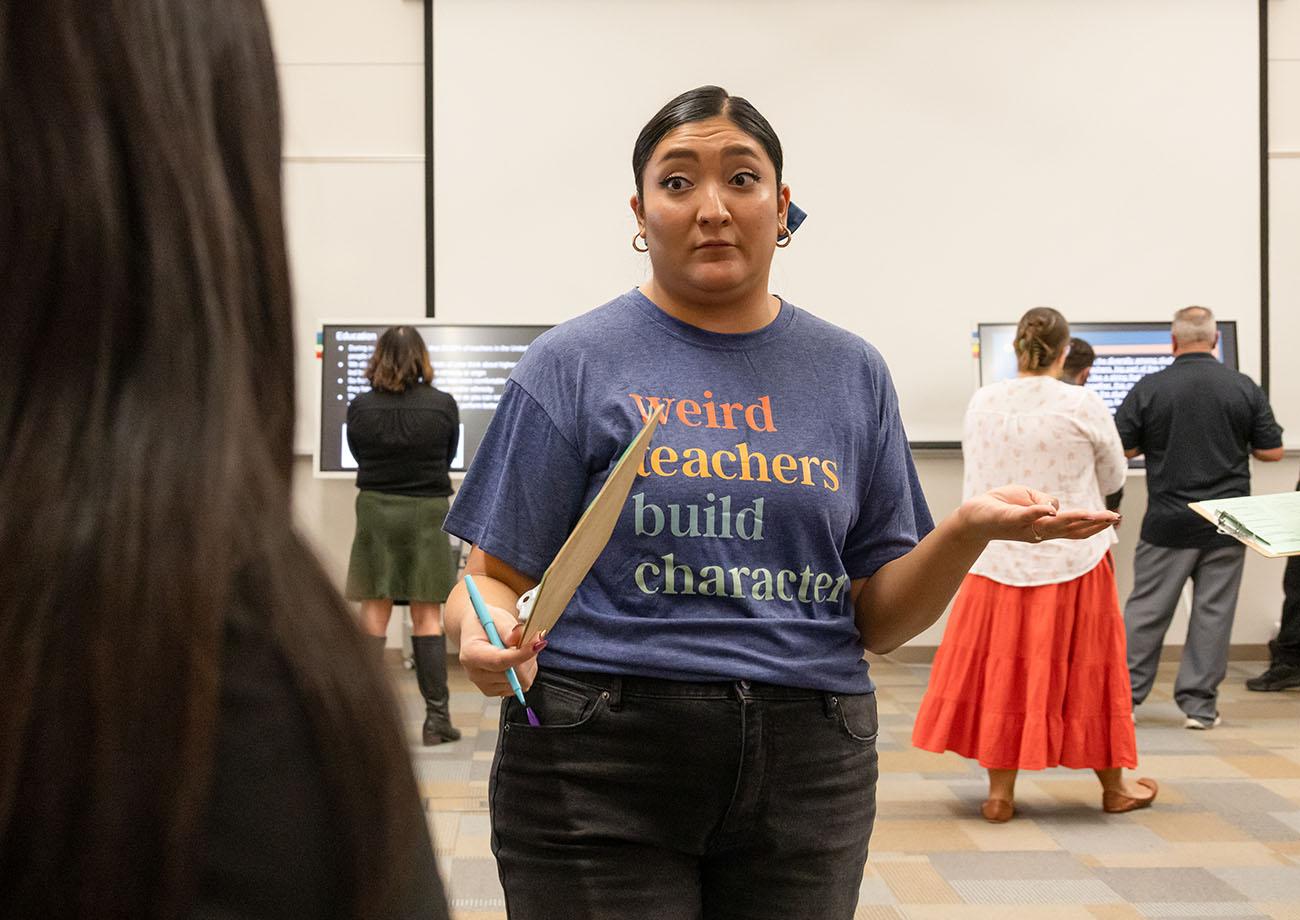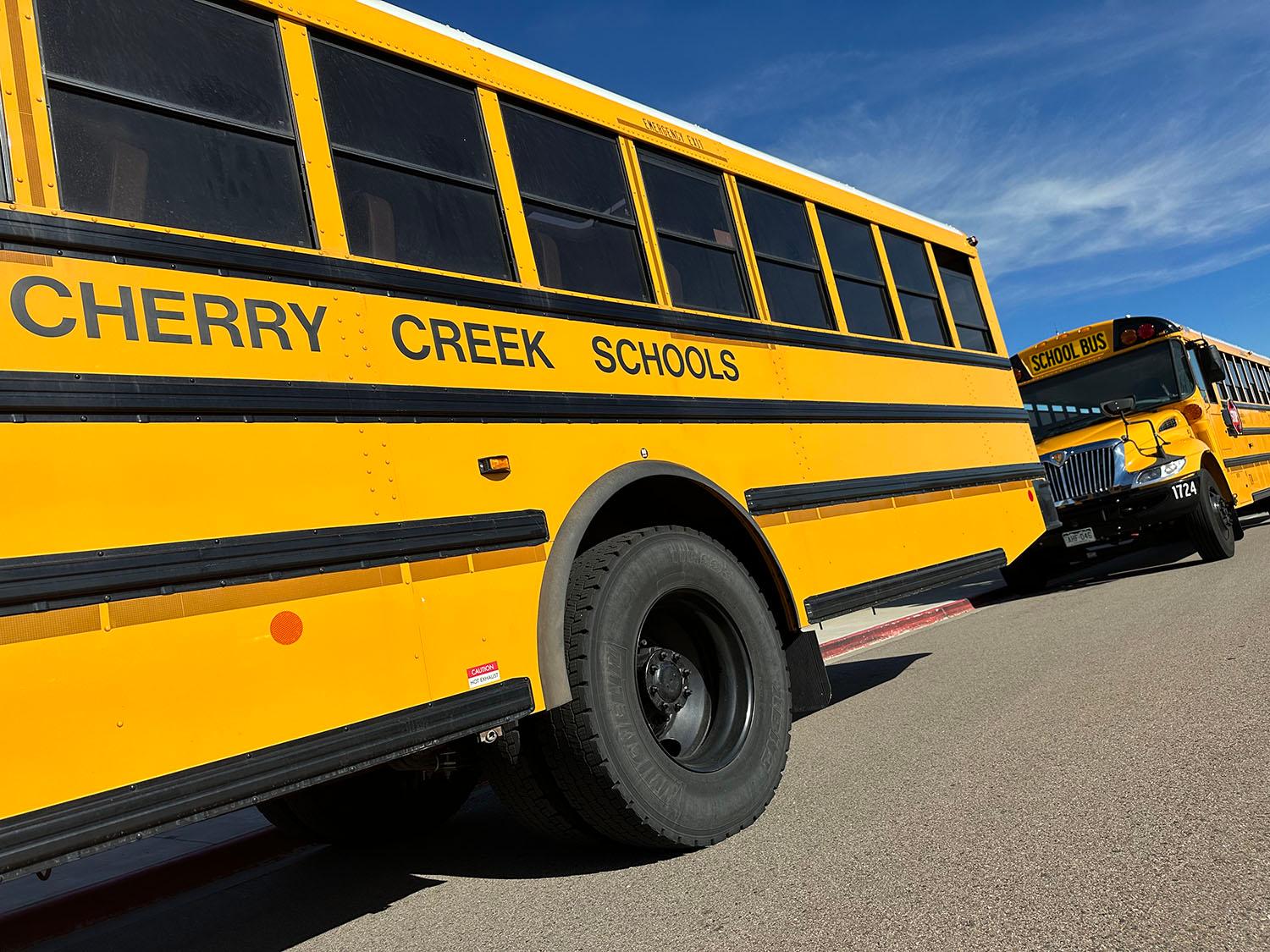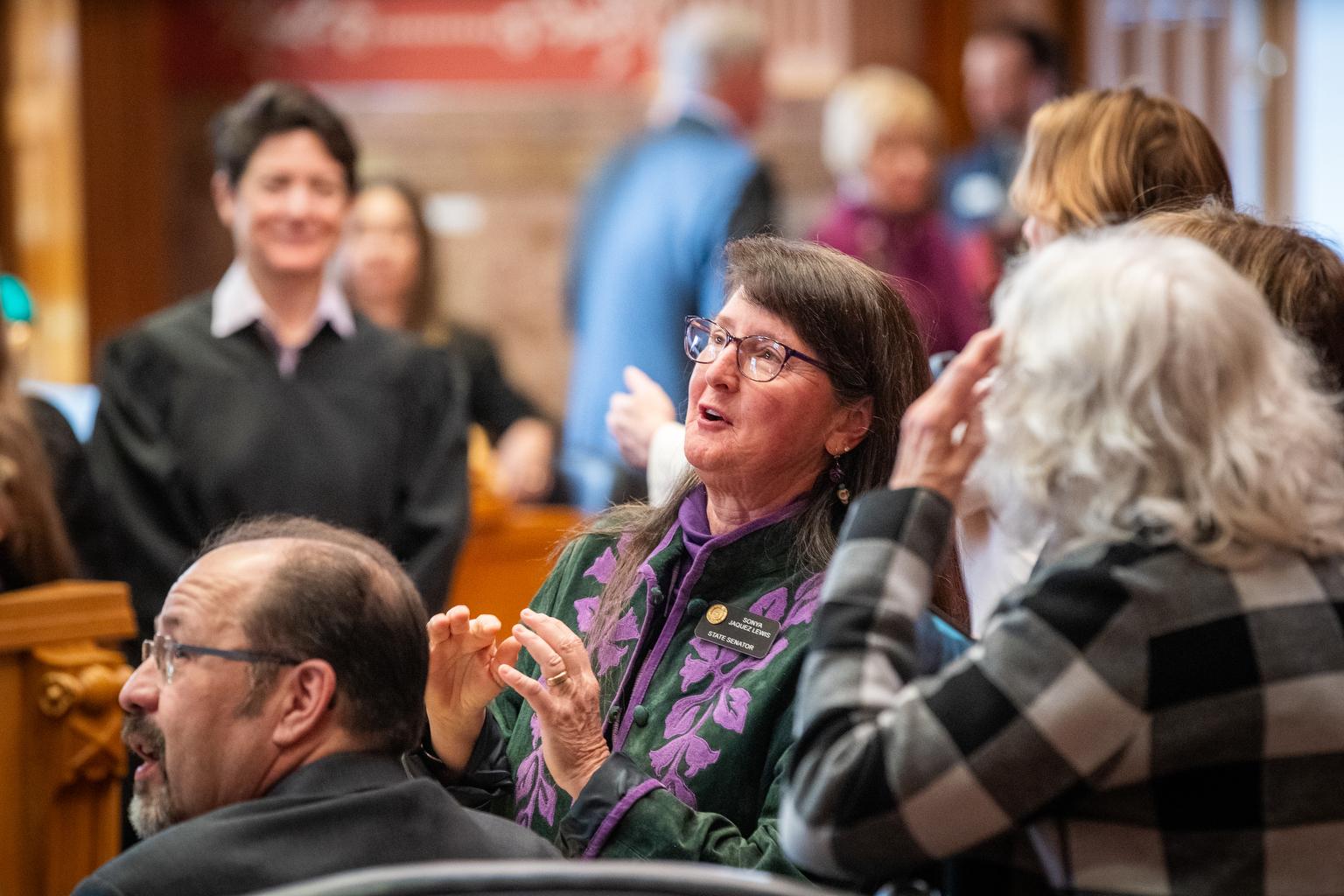
Editor's Note: This story originally aired July 15, 2016.
The Rockies start the second half of the Major League Baseball season today, following the league's All-Star break earlier this week. That means fans have another three months to eat all the hot dogs, peanuts and Cracker Jack they want at Coors Field, but not all the food that is prepared for home games gets purchased and eaten. This year, for the first time, Coors Field's food vendor is working with a nonprofit called We Don’t Waste to put the leftover food to use instead of throwing it out.
A small group of We Don't Waste employees visits Coors Field after each Rockies home stand, including a three-game series against the Toronto Blue Jays in June. The team drove a refrigerated truck up to the loading docks under the outfield bleachers. Before they collected anything, the truck already smelled like ripened fruit, from a pick up made the day before. About a ton of bananas and gallons of all-natural juice were loaded on pallets in the back.
The nonprofit's director of operations, Tim Sanford, said the food and drink came from a venue in town that wished to remain anonymous. But if We Don't Waste hadn't picked up the food, it would have gone to a landfill by the airport.
"It’s perfectly edible, good food," Sanford said.
Coors Field is just one of the places where We Don't Waste picks up. The nonprofit also has arrangements at Sports Authority Field at Mile High, the Pepsi Center, Dick's Sporting Goods Park, the convention center and other large venues around Denver and Boulder. The group takes food that was prepared or is about to expire, but nothing that was served to a customer. We Don't Waste drops off the food at shelters and other service agencies in cities up and down Colorado's Front Range, and donates to a Lakota Indian reservation in South Dakota, Sanford said.
"They don’t have enough food for the residents up there," Sanford said, adding that the Lakota reached out to We Don't Waste after finding out about the nonprofit online.

At Coors Field, the food vendor, Aramark, had already collected and packaged the leftover food from the games that week. Sanford and the We Don't Waste team walked straight back to a hallway lined with walk-in coolers, opened a door, and wheeled out a nearly 6-foot-tall cart filled with dozens of aluminum pans wrapped with plastic wrap, so the contents didn't spoil. The cooler also contained several jugs of Jose Cuervo tequila, which the nonprofit did not take.
Once back at the truck, We Don't Waste's Dana Van Daele cut open the plastic wrap and the team began moving the foil pans, which were each labeled with the contents. Rather than traditional ballpark food, the pans contained leftovers from Coors' luxury suites, where the VIPs eat.
We Don't Waste recovered 320 servings of potatoes, 120 servings of corn on the cob, 160 servings of scrambled eggs, and many more of cooked meats and vegetables. They added up to about 1,500 servings of food, according to We Don't Waste's records.
Before this partnership, Aramark would have had to throw the leftover food in the trash, according to Brian Arp, general manager of Coors Field for Aramark.
"We love the program. We’ve been trying to figure out for years a partnership that works so we don’t waste… It’s great to have finally a success," Arp said.
Arp said the food saving arrangement is most valuable when rain causes games to start late, which often means fans go home early or don’t show up to the park at all. Fewer fans means more excess food.

That includes hot dogs, which We Don't Waste collects, though it didn't get any after the series against the Blue Jays. But the nonprofit does not take the buns, according to executive director Arlan Preblud. "There, quite frankly, is an overabundance of bread in the city. Rather than waste it, they have an outlet that they can take that bread and compost it or feed it to farm animals," he said. Still, homeless shelters can use hot dogs by adding them to chili, or serving them as snacks with toothpicks, Preblud said.
"The fact of the matter is, it's good protein," he said.
We Don't Waste focuses on collecting high-protein food and fresh produce, though they deliver some sweets, as well, to take advantage of what's available.
"Food waste always disturbs me," Preblud said, "whether it's at home or when you go to an event and see the products left on the table, or the servings are too large for the people that are there." About 40 percent of food in the U.S. gets wasted, he said. He implores people attending Rockies games to buy what they will eat, and eat what they buy.
"If you only eat what you get, then the providers of that food will only produce what they need. But it's like any good operation: The last thing this ballpark, Coors Field, wants to have happen is people walk up to a concession stand and say, 'We're out of food.' So they have to absolutely produce more than is expected," Preblud said.
The excess food We Don't Waste collected after the Rockies' series against the Blue Jays went to a day shelter for homeless youth, called Sox Place, about a mile from the ballpark. Doyle Robinson co-founded Sox Place and serves as executive director.
He said the young people he serves would otherwise beg for food on the 16th Street Mall in Denver.
"You come out of a restaurant and they’re asking you for your leftovers," Doyle said.
Historically Sox Place served them pasta, or, as Doyle said, "Hamburger Helper that we’d get from the food bank without any hamburger."

There is no money exchanged with donors or recipients of We Don't Waste's food. The organization operates off philanthropic contributions. We Don’t Waste is small, with six employees, but it is the only organization operating at its scale in Colorado. Preblud says they have saved and distributed nearly 11 million servings this year.
Preblud hopes to eventually have a warehouse to store food overnight, to help the operation get more food to more people.








